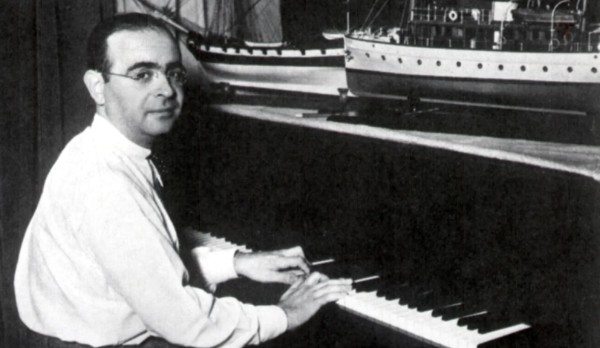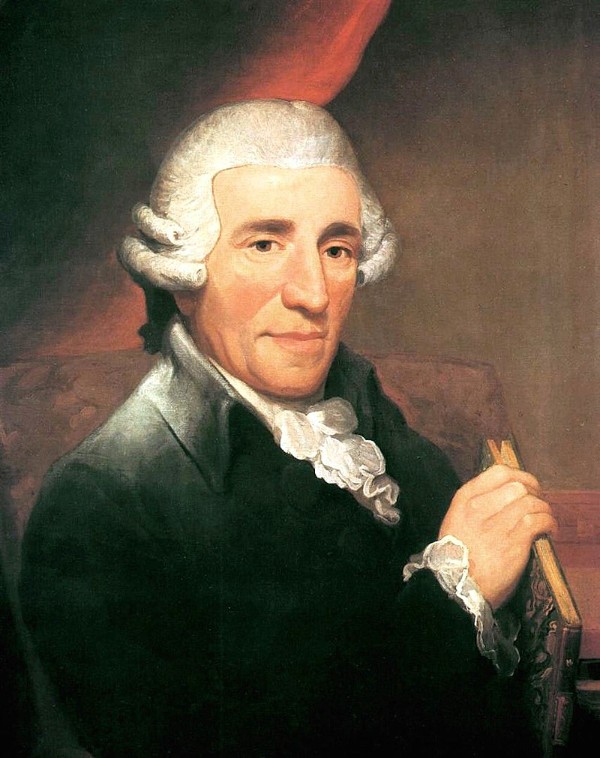In classical music, the contributions of Ukrainian composers have often been overlooked, overshadowed by their Western European counterparts.
However, a rich tapestry of talent exists within Ukraine’s musical heritage, and it’s time to shed light on the work of its unsung heroines. Today we’re celebrating the artistic brilliance of five Ukrainian women composers who have written in the classical tradition.
Their music transcends boundaries, embracing the essence of Ukrainian identity while incorporating a universal language that resonates with audiences worldwide.
Stefania Turkewich (1898-1977)
Stefania Turkewich was one of the first Ukrainian women composers. She was born in Lemburg, now known as Lviv, Ukraine. Her mother was a talented pianist, and her father was a priest, music critic, and amateur bass player who organised an amateur orchestra that played in their home.
Turkewich took up piano, harmonium, and harp, and proved to be extremely musically talented. Starting in 1914, she studied in Vienna for two years. In the 1920s, she returned to Austria, and also went to Berlin, where she studied with Schoenberg and Schreker.
In 1925, she married Ukrainian artist and amateur singer Robert Lisovsky, and they had a daughter together in 1927.
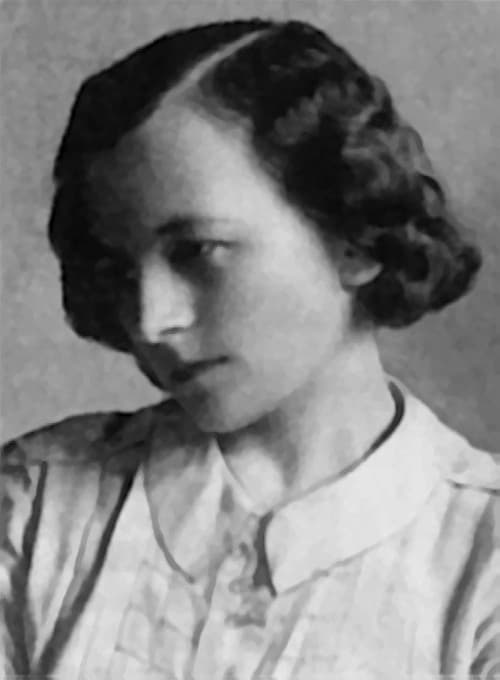
Stefania Turkewich
She didn’t let motherhood halt her studies, though, and she headed to Prague to continue her studies. In 1934, she earned a musicology doctorate there before returning to Lviv.
In the fateful year of 1939, the Soviet Union annexed an area between present-day Poland and Ukraine, including Lviv. The invading forces committed a variety of brutal atrocities, and Turkewich’s music was banned. In June 1941, Operation Barbarossa led to the Nazis and Axis forces invading before the Soviets recaptured the area in 1944.
These turbulent times led her to flee to Vienna in the spring of 1944. By this time, her marriage to Lisovsky was over, and she remarried a British physician. After that marriage, she moved to England, where she spent the rest of her life. She taught and composed until her death in 1977.
Krystyna Moszumańska-Nazar (1924-2009)
Born on 5 September 1924 in Lviv, Krystyna Moszumańska-Nazar’s life unfolded against a backdrop of political turbulence. The Soviet invasion of Lviv forced her to seek refuge at a young age in the comparatively unharmed city of Kraków, where she earned two diplomas in piano and composition in 1955.
After completing her studies, she embarked on a career in education, sharing her knowledge and expertise with aspiring musicians. Among her students were numerous prominent musicians who would later make their marks in the genres of jazz and rock.
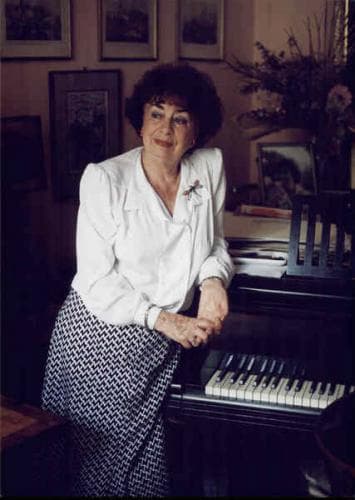
Krystyna Moszumańska-Nazar
In addition to teaching, she also composed. Her distinctive use of percussion instruments in her works garnered particularly widespread recognition. She wrote around seventy pieces of music, including orchestral works, chamber music, a percussion concerto, and more.
As her reputation flourished, she assumed an administrative role at the Academy of Music in Kraków, all the while continuing to compose, showcasing her commitment to both her students and herself.
Throughout the entirety of her career, she earned many awards and prizes. In 1999, she received the prestigious Commander’s Cross of the Order of the Restoration of Poland.
Lesia Dychko (1939-)
Lesia Dychko was born on 24 October 1939 in Kyiv. She grew up wanting to become a musician, and in 1959, she graduated with a degree in music theory.
In 1962, when she was still studying, Dychko composed a remarkable choral fantasy called “The Morning of the Rifle Execution,” which garnered acclaim. Two years later, she graduated with a degree in composition from the prestigious National Academy of Music of Ukraine.
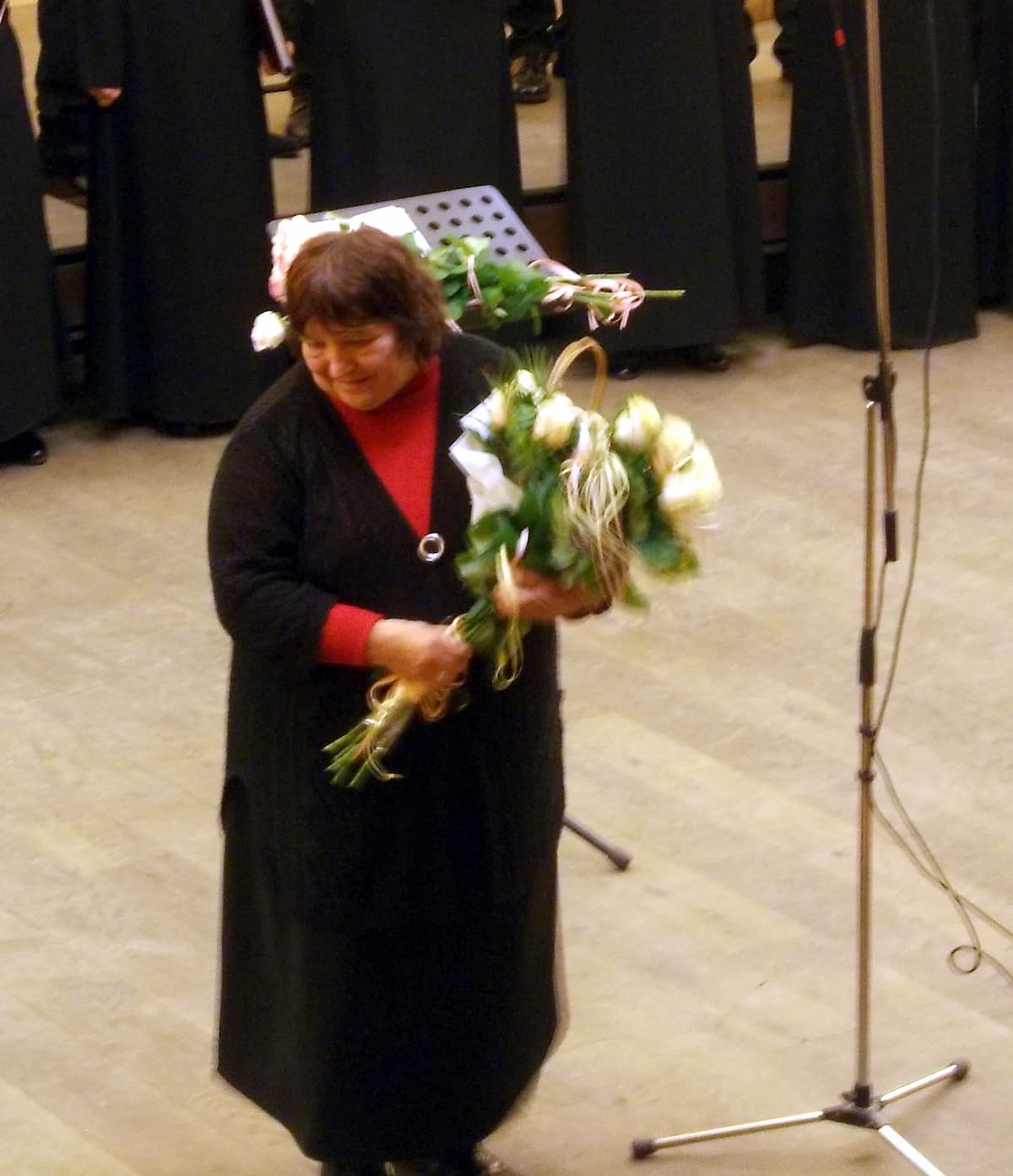
Lesia Dychko
After graduation, she embarked on a teaching career, working at institutions like the Kyiv Pedagogical Institute and the Kyiv Arts Academy. In 1994, she began teaching at the National Academy of Music of Ukraine, and in 2009, she became a professor there.
Dychko’s specialty was choral music. She was one of the first Ukrainian composers in the 1980s to venture into writing church music in a contemporary context. Her works often employed elements from Ukrainian folk music, meticulously woven into choral and instrumental contexts. Accordingly, she became known for shaping a movement that came to be known as the Neofolkloric Wave.
In 1989, she won the Shevchenko National Prize, the highest state prize in Ukraine for works of culture and the arts.
Hanna Havrylets (1958-2022)
Hanna Havrylets was born in Vydyniv, a small town in present-day western Ukraine, where she began her musical education.
In 1968, she moved to Lyiv to continue her studies. Eventually, she settled in Kyiv, where she graduated from the prestigious National Academy of Music of Ukraine in 1984. In 1992, she returned to her alma mater as a teacher.
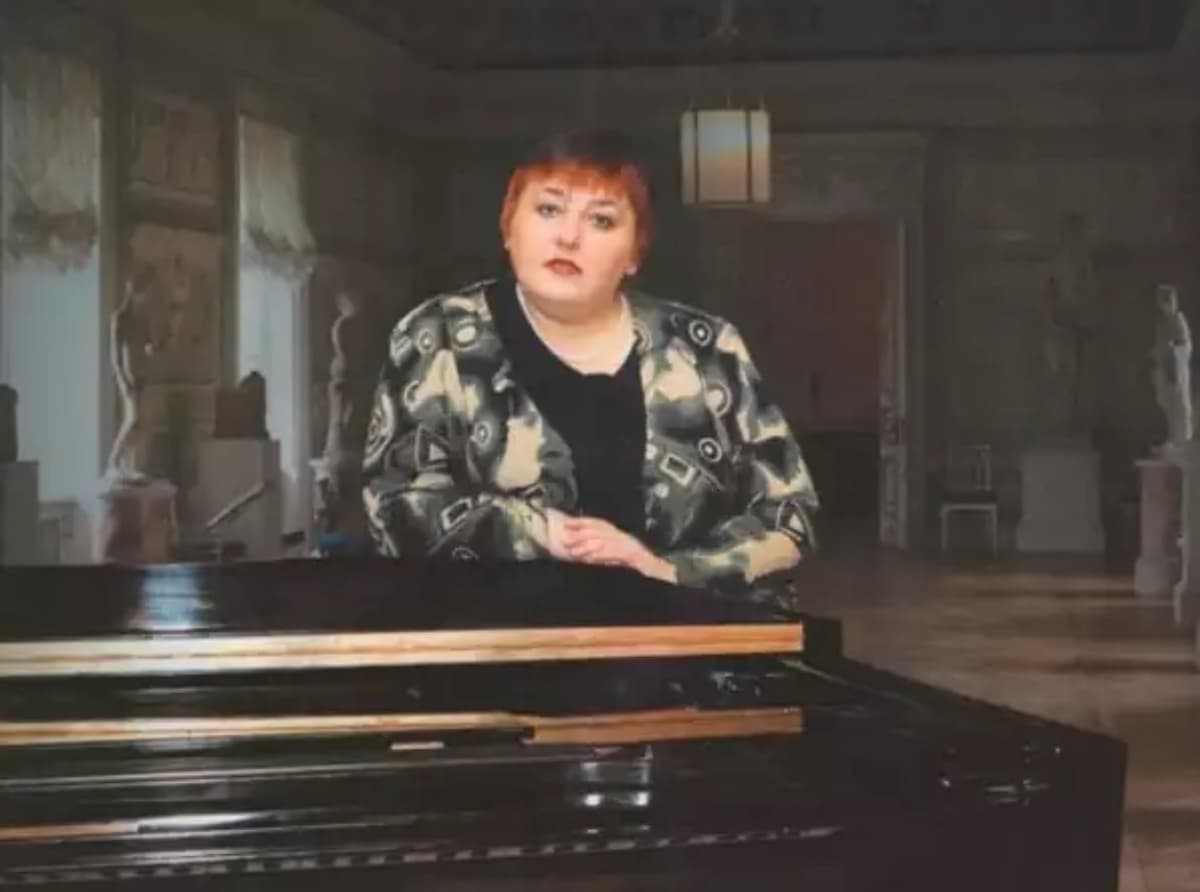
Hanna Havrylets
Throughout her career, she garnered numerous accolades. One notable milestone occurred in 1999 when she was awarded the esteemed Shevchenko National Prize, a distinction she shared with Lesia Dychko.
Much like Dychko, she was drawn to composing choral music, as well as music inspired by Ukrainian folklore, which gave her work a potent cultural identity.
Sadly, her life was tragically cut short. As Russia’s invasion of Ukraine unfolded in early 2022, she found herself caught in the midst of the chaos. Three days after the invasion began, she suffered an aneurysm, and, unable to access the medical attention she needed, she passed away in Kyiv on 27 February 2022.
Svitlana Azarova (1976-)
Svitlana Azarova was born on 9 January 1976 in Izmail in southwestern Ukraine. In 1996, she began studying composition at the Odessa Conservatory, where she graduated in 2000.
In 2003, she participated in a scholarship program that allowed her to study at the Frédéric Chopin Academy of Music in Warsaw for six months. That same year she also earned another scholarship based out of Germany. After this, her career became increasingly international.
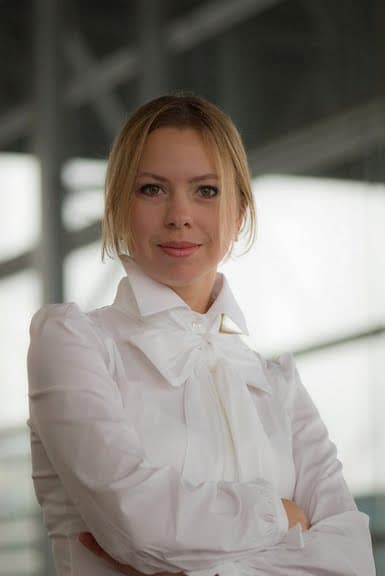
Svitlana Azarova
In 2007, she received her Master in Music degree from the Conservatorium van Amsterdam. During this time, she settled in Holland, where she still makes her home today.
Her commissions include projects for the Royal Danish Opera, l’Orchestre national d’Île-de-France, and other organizations and individual musicians.
For more of the best in classical music, sign up for our E-Newsletter

